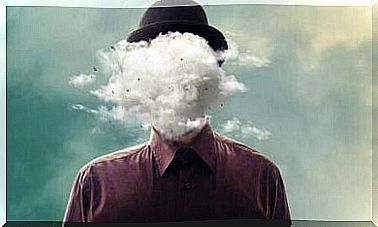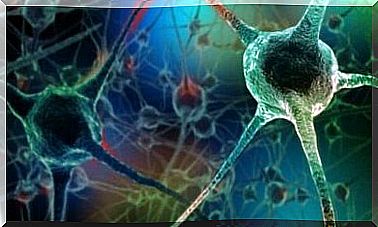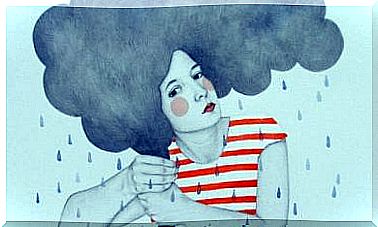Lack Of Sleep And Anxiety: A Bad Combination
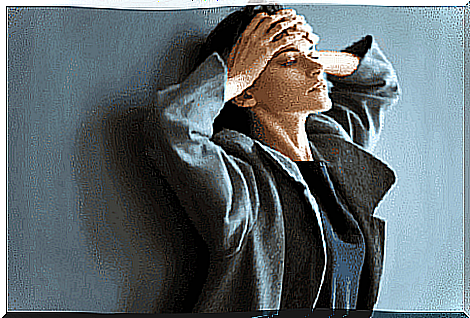
Lack of sleep and anxiety have a significant connection, according to recent studies. We refer not only to insomnia in itself, but also to not sleeping well. If you experience this every day, your health is probably in a downward spiral.
Neuroscience is evolving every day and giving us new information that is as interesting as it is valuable. For example, it was recently discovered that less than half an hour’s nap helps to improve short- and long-term memory. And we also know that sleeping is the key to eliminating toxins.
Humans, like most animals, need to sleep. Avoiding adequate rest puts our health and well-being at risk. Various experimental studies on sleep have shown the risk of this. It has also been observed that sleeping less than six hours a night increases the risk of neurodegenerative diseases.
Sophocles said that sleeping is the only effective medicine for almost everything, and he was absolutely not mistaken. Sometimes we completely neglect the importance of our primary habits. Sleeping for at least 7 or 8 hours a night is positive for both our physical and mental health.
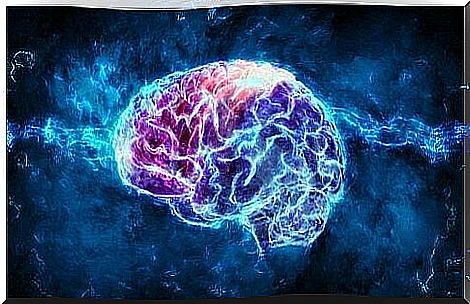
Lack of sleep and anxiety
The relationship between lack of sleep and anxiety has been a source of many studies in recent years. The topic was presented to a group of experts at the annual conference of the Society for Neuroscience held in San Diego, California. Dr. Clifford Saper, a member of the Sleep Research Society, who is one of the foremost specialists in the field, explained that:
- Lack of sleep is not insomnia. That does not mean going a month without sleeping.
- In fact, sleep is something so subtle and ordinary that we often do not give it the meaning required.
- Lack of sleep is to sleep for a few hours. It is to go to bed at midnight and wake up at 2 o’clock, then fall asleep again around 3 and wake up at 5 o’clock in the morning.
- What puts our health in real danger is that we do not enter the REM sleep stage (rapid eye movement) where the body rests deeply while the brain is more active than ever, and fulfills important tasks.
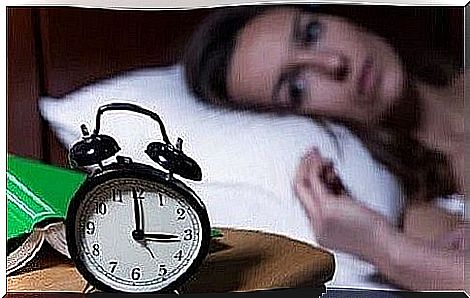
Lack of sleep and amygdala
Imagine that we have slept an average of five hours in a period of two to three months. We usually wake up tired, but we can still perform our tasks as normal. We tell ourselves that our body changes, so we need less sleep as we get older.
Yes, we can convince ourselves of this, but our brains do not agree with such reasoning. The truth is that we do not reach the deep sleep stage.
- Lack of sleep and anxiety are related because there is one structure that is starting to work too much: the amygdala.
- The amygdala is the area of the brain that is activated when the brain perceives risk. It releases a number of hormones that alert and wake us up to escape from a threat, whether it is real or imaginary.
- For the amygdala, lack of sleep is a threat. It is a danger that threatens the brain hemostasis against the organic balance that is so necessary for our well-being.
- Activation of the amygdala leads us hopelessly to a state of anxiety.
Lack of sleep affects our health
As we can see, the relationship between lack of sleep and anxiety can be a really vicious cycle. We sleep less and feel more anxious. Then the anxiety itself intensifies the manifestation of sleep disorders.
As if this were not enough, studies such as the one conducted at the University of Adelaide in Australia say that sleep problems not only increase the risk of suffering from anxiety. It is also a risk factor for depression.
Furthermore, Dr. Eti Ben-Simon, Ph.D., from the Center for Human Sleep Science at the University of California, Berkeley, pointed out that there are very effective sleep treatments. In fact, the patient’s psychological well-being may improve within a few weeks after a good night’s sleep.
Strategies to treat sleep deprivation and anxiety
Sleep hygiene specialists recommend putting two strategies into practice. On the one hand, we need to improve our sleep habits. On the other hand, it is important that we learn sufficient skills to better deal with stress and anxiety.
- We should start with a medical consultation. It is advisable to rule out other medical conditions that may affect our sleep problems.
- Secondly, we should visit a specialist in sleep therapy. There are very effective programs that prescribe medicine and where patients are offered personal programs to improve sleep.
- We should also stick to a schedule. We should go to bed at the same time and follow the same rituals every night.
- We should take care of our sleep hygiene (eating, exercise, sleeping environment…)
- Other suitable strategies are, for example, learning about and practicing paradoxical intention and biofeedback.
To conclude, given that there is a clear relationship between lack of sleep and anxiety, it is important to pay more attention to our sleep hygiene. Even if no one dies from sleep deprivation overnight, the quality of life is reduced.
